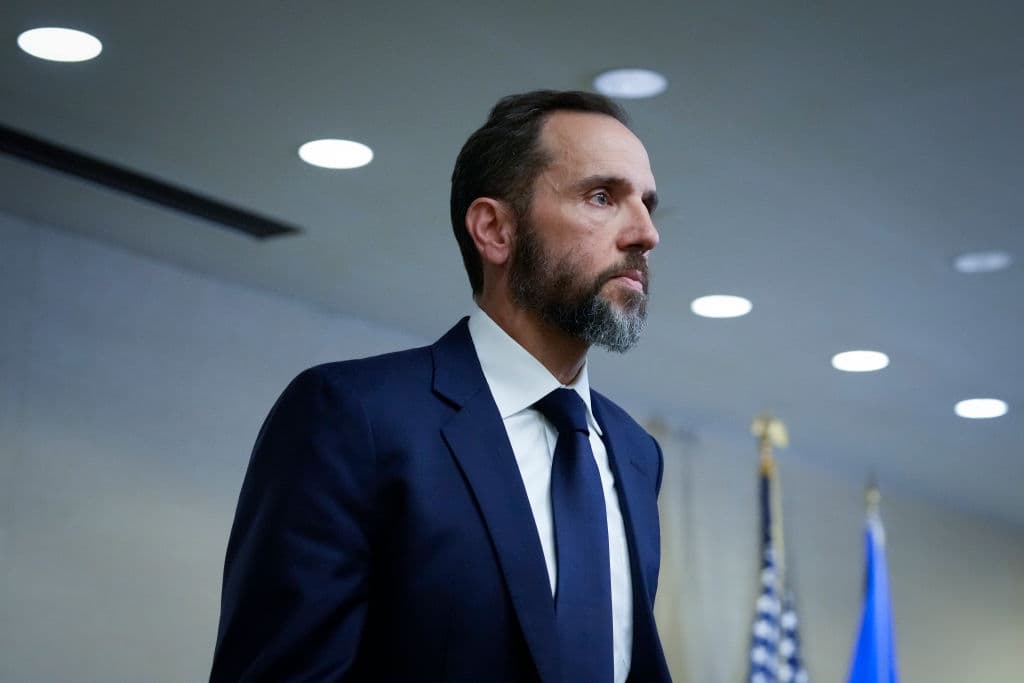Judge in Mar-a-Lago Case Escalates Feud With Jack Smith, Slams Him for ‘Unjust’ Motion and Dares Him To Appeal
The jurist describes herself as making a ‘genuine’ effort to understand a ‘complex’ case, but the special counsel begs to differ.

Judge Cannon’s denunciation of Special Counsel Jack Smith’s demand for clarity on jury instructions as “unprecedented and unjust” doubles as a dare to the prosecutor to take his discontent to the riders of the 11th United States appeals circuit.
The sharp words come toward the end of a three-page opinion that actually amounts to a victory for Mr. Smith. Judge Cannon rejected Mr. Trump’s request that the criminal charges stemming from his storing of documents at Mar-a-Lago be dismissed on the basis of the Presidential Records Act.
Mr. Trump has leaned on that statute as he seeks to avoid a conviction under the Espionage Act, the law under which Mr. Smith has charged the 45th president for his handling of some classified documents post-presidency. Mr. Trump claims that the records he took were designated as “personal” under the PRA. Mr. Smith argues that Mr. Trump never designated the documents as such, and that even if he had, it would have no relevance to criminal culpability.
Judge Cannon found that at this early stage in the litigation, Mr. Smith’s indictment presents “cognizable offenses” with enough specificity and grounding in law to evade dismissal. She adds that the special counsel’s case “specifies the nature of the accusations against Defendant Trump in a lengthy speaking indictment with embedded excerpts from investigative interviews, photographs, and other content.” Mr. Smith does not rely on the PRA for the “purposes of stating an offense.”
While Mr. Smith is likely relieved that the case will proceed, the jury instruction issue is emerging as a flashpoint between him and the jurist who was installed by Mr. Trump in 2020. The special counsel asserts that Judge Cannon’s “scenarios” for instructing the jury “would distort the trial” and that her “legal premise is wrong.” His position is that the PRA “should not play any role at trial at all.”
Mr. Smith’s criticism of Judge Cannon has been accompanied by increasingly explicit indications that he intends to, as he writes, “seek prompt appellate review,” which could take the unusual form of a petition for a writ of mandamus, where a higher court — here the 11th Circuit — issues an order to a lower one. The jury instructions matter, he maintains, “cannot be deferred.”
Judge Cannon disagrees. It is this demand for an “anticipatory finalization of jury instructions prior to trial” that she finds “unprecedented and unjust.” She explains that her request for draft instructions was a “genuine attempt, in the context of the upcoming trial, to better understand the parties’ competing positions … in this complex case of first impression.”
In maintaining that her order should not be “misconstrued as declaring a final definition on any essential element or asserted defense in this case,” Judge Cannon could be foreclosing Mr. Smith’s avenues for appeal by casting the demand more as a fact-finding gesture than a final decision. She flashes a hint of defiance, though, when she writes that “any party remains free to avail itself of whatever appellate options it sees fit to invoke, as permitted by law.”
While Judge Cannon’s refusal to issue a final ruling on jury instructions will complicate Mr. Smith’s path to appeal, he faces a foreshortened window. The Constitution’s prohibition of double jeopardy attaches once a jury is seated, meaning that it will be more difficult for the prosecution to request review after that point. A move for mandamus could be Mr. Smith’s best bet.

